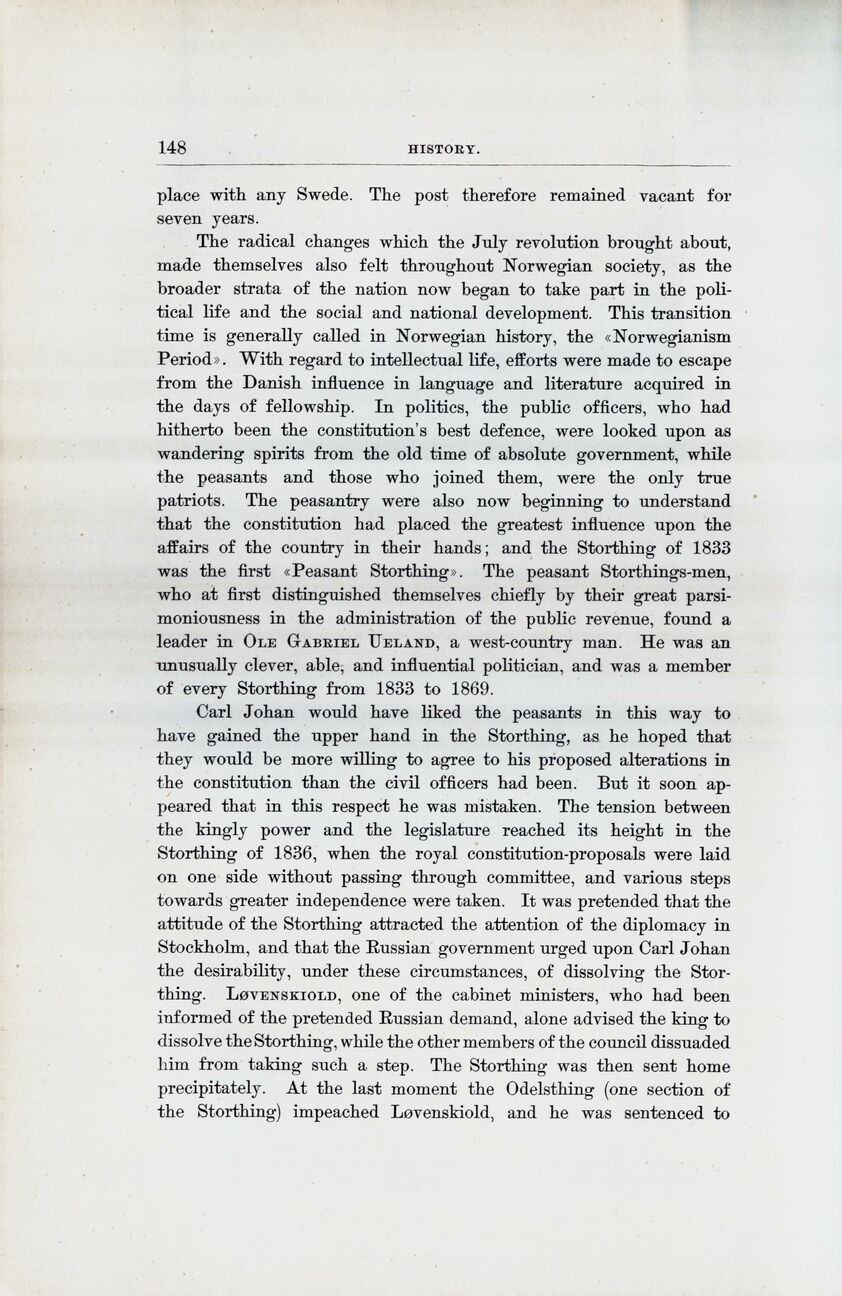
Full resolution (JPEG) - On this page / på denna sida - History, by O. A. Œverland

<< prev. page << föreg. sida << >> nästa sida >> next page >>
Below is the raw OCR text
from the above scanned image.
Do you see an error? Proofread the page now!
Här nedan syns maskintolkade texten från faksimilbilden ovan.
Ser du något fel? Korrekturläs sidan nu!
This page has been proofread at least once.
(diff)
(history)
Denna sida har korrekturlästs minst en gång.
(skillnad)
(historik)
place with any Swede. The post therefore remained vacant for
seven years.
The radical changes which the July revolution brought about,
made themselves also felt throughout Norwegian society, as the
broader strata of the nation now began to take part in the
political life and the social and national development. This transition
time is generally called in Norwegian history, the «Norwegianism
Period». With regard to intellectual life, efforts were made to escape
from the Danish influence in language and literature acquired in
the days of fellowship. In politics, the public officers, who had
hitherto been the constitution’s best defence, were looked upon as
wandering spirits from the old time of absolute government, while
the peasants and those who joined them, were the only true
patriots. The peasantry were also now beginning to understand
that the constitution had placed the greatest influence upon the
affairs of the country in their hands; and the Storthing of 1833
was the first «Peasant Storthing». The peasant Storthings-men,
who at first distinguished themselves chiefly by their great
parsimoniousness in the administration of the public revenue, found a
leader in Ole Gabriel Ueland, a west-country man. He was an
unusually clever, able, and influential politician, and was a member
of every Storthing from 1833 to 1869.
Carl Johan would have liked the peasants in this way to
have gained the upper hand in the Storthing, as he hoped that
they would be more willing to agree to his proposed alterations in
the constitution than the civil officers had been. But it soon
appeared that in this respect he was mistaken. The tension between
the kingly power and the legislature reached its height in the
Storthing of 1836, when the royal constitution-proposals were laid
on one side without passing through committee, and various steps
towards greater independence were taken. It was pretended that the
attitude of the Storthing attracted the attention of the diplomacy in
Stockholm, and that the Russian government urged upon Carl Johan
the desirability, under these circumstances, of dissolving the
Storthing. Løvenskiold, one of the cabinet ministers, who had been
informed of the pretended Russian demand, alone advised the king to
dissolve the Storthing, while the other members of the council dissuaded
him from taking such a step. The Storthing was then sent home
precipitately. At the last moment the Odelsthing (one section of
the Storthing) impeached Løvenskiold, and he was sentenced to
<< prev. page << föreg. sida << >> nästa sida >> next page >>